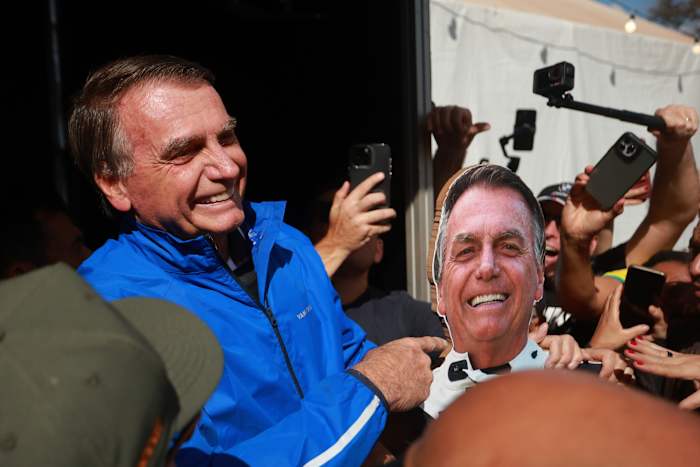President Donald Trump recently enacted a significant executive order, citing a 1977 law, to justify the imposition of a substantial 50% tariff on goods imported from Brazil. This unexpected move establishes a legal framework, asserting that Brazil’s current policies and the ongoing criminal prosecution of specific individuals constitute an economic emergency for the United States. The decision sends ripples through international trade relations, marking a pivotal moment in the economic dialogue between the two nations.
This declaration of an “economic emergency” provides the foundational legal rationale for the tariffs, deviating from previous justifications for similar trade actions. The invocation of the 1977 law underscores a more aggressive stance, suggesting a perceived threat to U.S. economic stability stemming directly from Brazilian internal affairs and trade practices. This approach highlights a broader shift in US trade policy under the Donald Trump administration.
The threat of these substantial Brazil tariffs was initially voiced by Trump on July 9 in a previous communication. However, that earlier warning was predicated on concerns over existing trade imbalances, specifically citing them as a potential threat to the American economy. This new executive order introduces a distinct and arguably more contentious basis for the tariffs, moving beyond simple trade deficits.
Interestingly, official data from the U.S. Census Bureau indicates that America actually ran a $6.8 billion trade surplus with Brazil last year. This economic reality directly challenges the premise of trade imbalances as the sole or primary reason for the tariff imposition. The disparity between the stated justification and the actual trade figures raises questions about the underlying motivations behind the latest economic sanctions.
The executive order mandates an additional 40% tariff on top of the baseline 10% tariff already being applied by the United States on certain Brazilian imports. This effectively brings the total tariff rate to an imposing 50% on affected goods, significantly increasing the cost of doing business between the two countries and potentially impacting various sectors of the U.S. economy.
It is crucial to note, however, that the sweeping 40% additional tariff will not be universally applied to all goods imported from Brazil. Specific categories of products have been explicitly excluded from the heightened duties. These exemptions include civil aircraft and parts, aluminum, tin, wood pulp, energy products, and fertilizers, indicating a selective approach to the international trade measures.
This complex interplay of trade figures, legal interpretations, and selective exclusions underscores the intricate nature of modern international trade policy. The actions taken by the Trump administration against the Jair Bolsonaro government in Brazil reflect a broader global trend of nations leveraging economic tools to exert pressure and reshape bilateral relationships, often under the banner of protecting national economic emergency interests.
The long-term implications of these tariffs on US-Brazil trade relations remain a subject of considerable debate among economists and political analysts. While designed to address perceived economic threats, such measures can also lead to retaliatory actions, higher consumer costs, and disruptions in global supply chains, affecting various industries and the broader landscape of international relations.






Leave a Reply